|
Actor Michael Nyqvist turns out to
be a tormented soul. Rather than talk about the Millennium
trilogy, he talks about the book he wrote about his
youth.
Source: 8 Weekly (Netherlands) - March
25, 2010
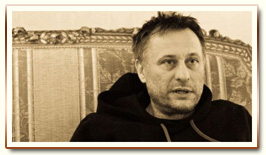
He likes to play sensitive men, such
as the armed conductor in "As It Is in Heaven", the lonely
father in "Together" and the fierce reporter Michael Blomkvist in Millennium 1, 2 and 3. His piercing blue
eyes are very suitable for expressing unspoken feelings.
For the sake of honesty, Michael Nyqvist also has the
necessary one-dimensional bad guy on his cv, less
familiar films outside Scandinavia. His heart, however,
lies in characters that are self-blurred. He also appears to have known the
necessary highs and lows.
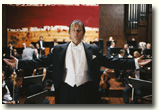
How does the Millennium success
feel?
It's weird. I feel like I'm in Harry
Potter. To be honest, I was even depressed. It's all
about success, and not about the story itself. I always
had to hand out signatures, but now there's much hysteria.
On the other hand, I am also very proud. I feel
an ambassador to Scandinavian cinema.
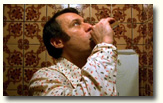
Have you seen "Together"? Did you like him? Me too.
I'm very proud of that movie. It's my favorite role
because we could finally laugh at the things we were not
supposed to laugh at in Sweden. I remember that at the
premiere, a woman called out that the film
was not politically correct. And we thought - We know that! Thank you!
It was all so serious. I grew up at
that time. I had friends who did not know who their
father was: the beard or the beard? When I was young, I
even lived in a community for a short while.
I heard you wrote a book about your childhood.
I was born with a question mark because I was adopted.
The first one and a half years of my life I spent in an
orphanage. When I was five, they said to me: You are not
Swedish, you are Italian. If at that age you are faced
with such an existential philosophical question about
your life, and all you accepted does not seem to be
true, you become a very strange person.
My book is about: identity, honesty and
authenticity... Your father may work in a
parking garage or he might be in the mafia or whatever.
You have no idea.
Did you feel the urge to find out?
Yes, especially when I had children. When the oldest was
born, I thought: she will ask for a long time where we
come from, and I cannot answer her questions... I felt
depressed, the first year my daughter was born, and my
son again.
I found my mother who said she hated me because of what
I had done. Like it was my fault. The conversation
lasted twenty minutes, but I received her name from my
father. He lives in Florence. With him I suddenly had a
brother and a sister. We are very close now. Since then
my life has changed dramatically. I broke through as an
actor.
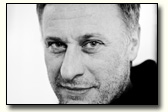
Is that why you started acting late?
Theater seemed like something for myths. I was
doing boxing and rock 'n' roll. Theater was bourgeois. A
girlfriend took me over to try it out. To build a
character, ask questions: where do I come from? Where am
I going? What do I want? And I could not answer that
first question in my own life. And so, acting was a way
of flying.
What is the title of your book?
In Swedish it is when the child is
sleeping. In English, I had to change that because it
sounded like child abuse.
I have to tell you something else: for eleven years I
have followed psychoanalysis four times a week to get my
memory out of my mind. I wanted to get my memories up to
the orphanage. At that time I climbed a lot in the
mountains. I always wanted to go higher, to the snow. Up
there was heaven, I thought. But once I got up there, I always
felt terribly alone. Still, I continued. I climbed the
Pyrenees, the Alps and the Appalachians...
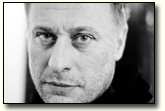
You have to live with your wound.
Depressing, but that's how it works. But uh, don't you want to know if I love football?
[Edited translation]

|